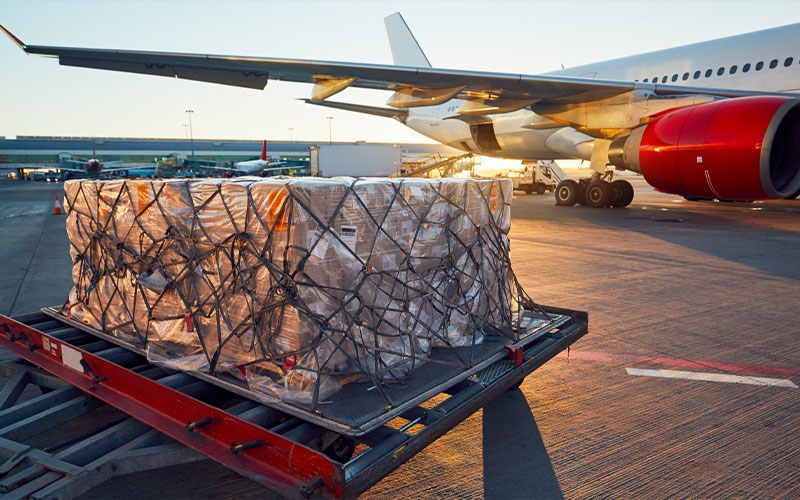
What is International Household Goods Customs Clearance?
International household goods customs clearance is a process that involves carrying out the relevant customs procedures for household goods transported from one country to another in accordance with customs legislation. This process ensures that the goods being transported enter the country in accordance with the law and that any customs duties or taxes are paid. In international transportation, customs clearance procedures are very important and must be carried out correctly. Here is what you need to know about international household goods customs clearance:
- Stages of the Customs Clearance Process
Preparing a List of Goods: It is necessary to prepare a detailed list of all the goods to be transported. This list includes the type, quantity, value and other important information of the goods.
Customs Declaration: The documents that the goods need to be declared must be prepared and submitted to the customs administration. These documents include the customs declaration, invoice, bill of lading and other relevant documents.
Payment of Taxes and Duties: Customs duties, import duties and other expenses must be paid. Taxes vary depending on the value and type of the goods.
Customs Inspection: Customs officials examine the goods and check whether they comply with the declared information. If any missing or incorrect declarations are detected during the inspection, additional procedures may be required.
Customs Exit: After all procedures are completed and the necessary payments are made, the goods are cleared from customs and delivered to the new country.
- Required Documents
Passport and Visa: Passport and visa, if necessary, of the person to be transported.
Item List (Inventory): A detailed list of all items.
Transport Document (Bill of Lading): A document confirming the transportation process.
Invoice and Purchase Documents: Documents showing the value of the goods.
Residence Certificate: Document showing that the new country will be in residence.
Customs Declaration: An official document declaring the goods.
- Customs Duties and Exemptions
Tax Applications: Customs duties vary depending on the type and value of the goods being transported. Each country has different customs duty rates and practices.
Exemptions: In some cases, exemptions from customs duties may be provided when certain conditions are met. For example, those who reside abroad for a certain period of time or diplomats can import some of their items tax-free.
- Special Items and Restrictions
Restricted and Prohibited Items: Some items are restricted or prohibited from being imported. Such as weapons, explosives, some medicines and agricultural products.
Delicate and Valuable Items: Special permits and procedures may be required for valuable items such as works of art, antiques and jewelry.
- Professional Support and Consultancy
Logistics Companies: Professional logistics companies such as MSC Logistics provide services with their experienced teams in international transportation and customs clearance transactions.
Customs Consultants: Receiving professional support in customs clearance transactions ensures that the process is completed smoothly and quickly. Customs consultants assist in the preparation of documents, declaration procedures and all other stages.

Frequently Asked Questions (FAQ)
What is customs duty and how is it calculated?
Answer: Customs duty is a tax paid depending on the value and type of imported goods. Tax rates and calculation methods vary according to each country’s customs legislation.
Which items can be exempted from customs duty?
Answer: Items that meet certain conditions, such as diplomatic items, personal items of those residing abroad for a long time, and in some cases, souvenirs, can be exempted from customs duty.
How long does customs clearance take?
Answer: The duration of customs clearance can vary depending on the complete and correct preparation of documents, the workload of customs officials, and the inspection status of the goods. It can usually take from a few days to a few weeks.
What should be considered during customs procedures?
Answer: It is important to prepare the documents completely and correctly, to declare the goods correctly, and to act in accordance with customs legislation. In addition, customs duties and fees must be paid on time.
Why is it important to receive professional customs clearance service?
Answer: Professional customs clearance service ensures that the process is completed smoothly and quickly. Experts are familiar with customs regulations and provide support in preparing the necessary documents, declaration procedures and other stages.
International household goods customs clearance is an important process that must be done carefully and correctly. As MSC Logistics, we provide professional support in international transportation and customs clearance processes, ensuring that your goods reach your new country safely and smoothly.










Documents Required for Customs Clearance Procedures
The documents required for customs clearance in international household goods transportation may vary depending on the type and value of the goods being transported and the customs legislation of the country to which they will be transported. In general, the following documents are requested for customs clearance:
- Passport and Visa
Passport: Valid passport of the person to be transported.
Visa: Valid visa required for entry into the country to which they will be transported (if applicable).
- List of Items (Inventory)
Detailed List of Items: A detailed list of all items to be transported. This list must include the description, quantity, value and serial number, if any, of each item.
Declaration of Value: A declaration showing the total value of the items.
- Transport Document (Bill of Lading)
Bill of Lading: A document confirming that the items have been transported. In sea transportation, it is called “Marine Bill of Lading” and in air transportation, it is called “Airway Bill”.
- Invoices and Purchase Documents
Invoices: Invoices showing that the goods being transported were purchased or owned.
Purchase Documents: Original purchase documents for the goods.
- Certificate of Residence
New Certificate of Residence: Document showing that you will reside in the new country. This document confirms your new address and period of residence.
- Customs Declaration
Customs Declaration: Official document declaring the goods. This document is submitted to the customs administration and initiates the customs procedures for the goods.
- Customs Duties and Taxes
Tax Declarations: Documents showing that customs duties, import duties and other expenses have been paid for the goods.
- Permits and Certificates
Special Permits: Permits required for items requiring special permits (for example, weapons, antiques, works of art).
Certificates: Certificates required for specific items such as food products, medicines or plant materials.
- Health and Hygiene Documents
Health Certificates: Some countries may request health certificates for the transportation of pets or plants.
Hygiene Documents: Documents required for certain items to be transported in accordance with hygiene standards.
- Insurance Documents
Insurance Policy: Document showing that the items being transported are insured. The insurance policy is required to provide compensation in case of damage to the items during transportation.
- Carrier Company Documents
Transportation Agreement: Transportation contract made with the logistics company that transports your items.
Carrier Company Authorization Certificate: Documents showing the legal authorities and licenses of the carrier company.
These documents are important for the smooth and fast completion of customs procedures. Preparing the documents completely and correctly ensures that there are no delays or problems in customs procedures. As MSC Logistics, we provide professional support in international transportation and customs clearance procedures, helping you with the preparation of documents and management of customs processes.

Calculation of Clearance Prices
Customs clearance prices are calculated by taking into account the factors mentioned above. This calculation varies according to the characteristics of the goods to be transported and the customs legislation of the country to be transported. For example, the following cost items can be included in customs clearance prices:
Customs Duty: Calculated according to the value and type of the goods.
Import Duties: Additional fees depending on the country.
Customs Consultancy Fees: Professional service fees.
Logistics Company Fees: Transportation and storage services.
Packaging and Wrapping: Services required for safe transportation.
Insurance: Insurance of goods during transportation.
In order to clearly determine customs clearance costs, a detailed assessment must be made according to the characteristics of the goods to be transported and the customs legislation of the country to be transported. As MSC Logistics, we provide you with professional support in international transportation and customs clearance transactions, ensuring that costs are calculated correctly and the process is completed smoothly.



